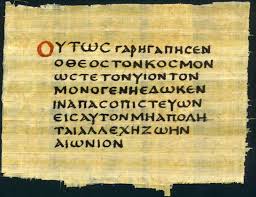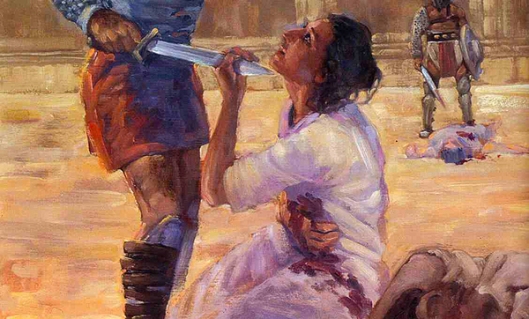Hi, it’s me again. It’s been a while since I wrote anything on this blog and will now try to get back into the discipline of doing it regularly.
One of my passions over the last four years has been getting deeper into the New Testament Greek also called Koine (common) Greek. One of the projects I am undertaking is to write a book for intermediate Koine Greek students based on the Didache. The Didache is a very early Christian document written probably in Egypt around 100AD or so. This puts the writer in the same generation of the people who wrote the New Testament books. The language in the Didache is very similar to the New Testament and there are many Bible quotes contained in it. This makes the Didache an interesting challenge to the student of New Testament Greek in that the language is similar but the content is not 100% familiar. Often, we are so intimate with the English New Testament that you can guess the meaning of a word or sentence in the Koine Greek because you know the passage in English so well. The Didache gives you the same language but in a slightly different context.
The Koine Greek title Didache means “The Teaching”. It was composed sort of as a church manual for the first Christian communities. It contains a recap of the Gospel teachings and then gives guidance on how to baptize believers, how to treat wandering prophets and to test whether they are false or not.
One section deals with guidance on how to treat visitors to the community that say they are a Christian. The Didache writer say to welcome them and feed them. However their stay should be limited to one day, maybe two or three at the most if they have need. It is apparent that there were many itinerant preachers, prophets, and ordinary Christians roaming from place to place.
The Didache then addresses the problem of some people taking advantage of the early Christian communities by sponging off of their charity and hospitality. For example, the Didache points out that if a so-called prophet asks for money, then he is a false prophet. If a prophet orders an elaborate meal to be set and he himself eats from it, then he is a false prophet, and so on.
It goes on to explain that if a wandering Christian wants to settle in the community, and he is a craftsman or has a trade, that person should work and earn his keep. If he does not have a trade, he should work and contribute somehow anyway. It admonishes the community to ensure that Christians do not become lazy or been seen as “idlers”. It then says that if the person is not willing to work but still claims to be a Christian and wants support, then he is a Χριστεμπορος (Christemporos) and they should beware of him. This Koine Greek word is not found in the New Testament and the writer probably made it up. Like in German, you could make new compound words in Koine Greek. This word is made up of χριστος (Christ) + εμπορος (emporos – a traveling merchant, a peddler). We get the word “emporium” from the same root of “emporos”. What the writer meant was that there were some wandering Christians that were taking advantage of the generosity of the Christian communities by leveraging Christ to make a living. The were “peddling Christ”, sponging off the faithful and ripping them off. So this was in 100AD. Unfortunately, we still have the same problems today in 2019. All you have to do is look at the internet or watch TV to find a modern version of the Christemporos. “Send me money and I will give you a vial of miracle spring water!” and the like. Its sad but this is not a new phenomenon as the Didache shows us. So use discernment.
Blessings,
Pete










